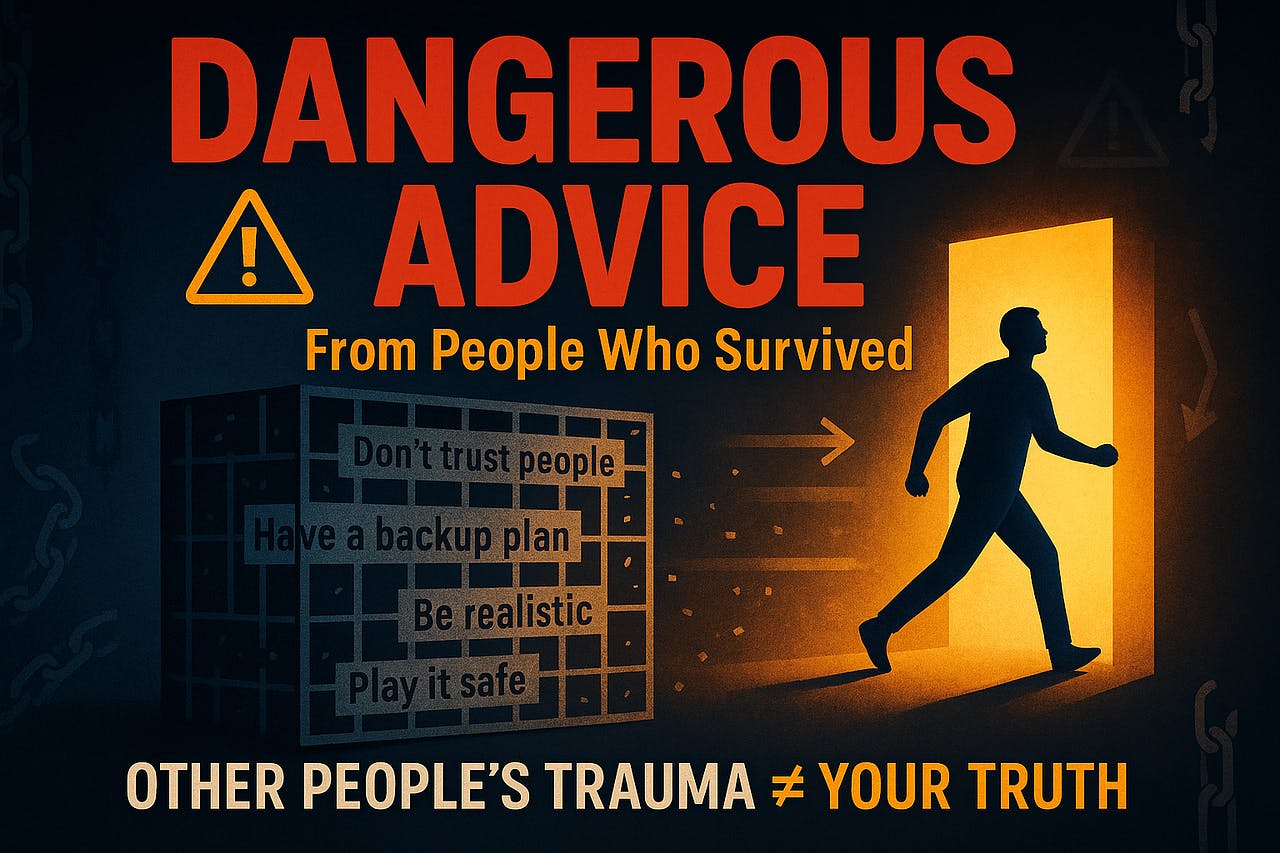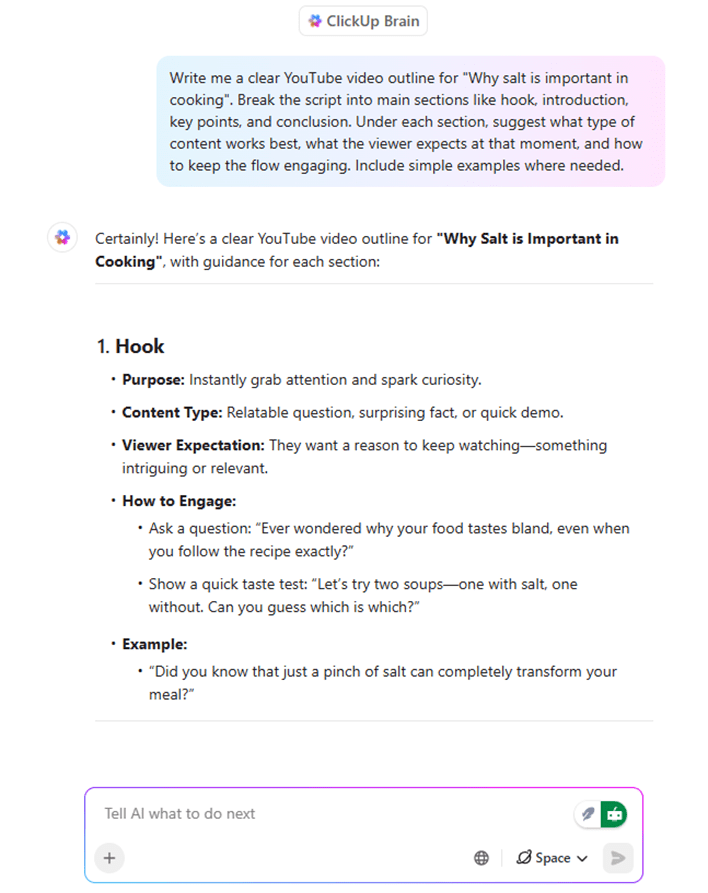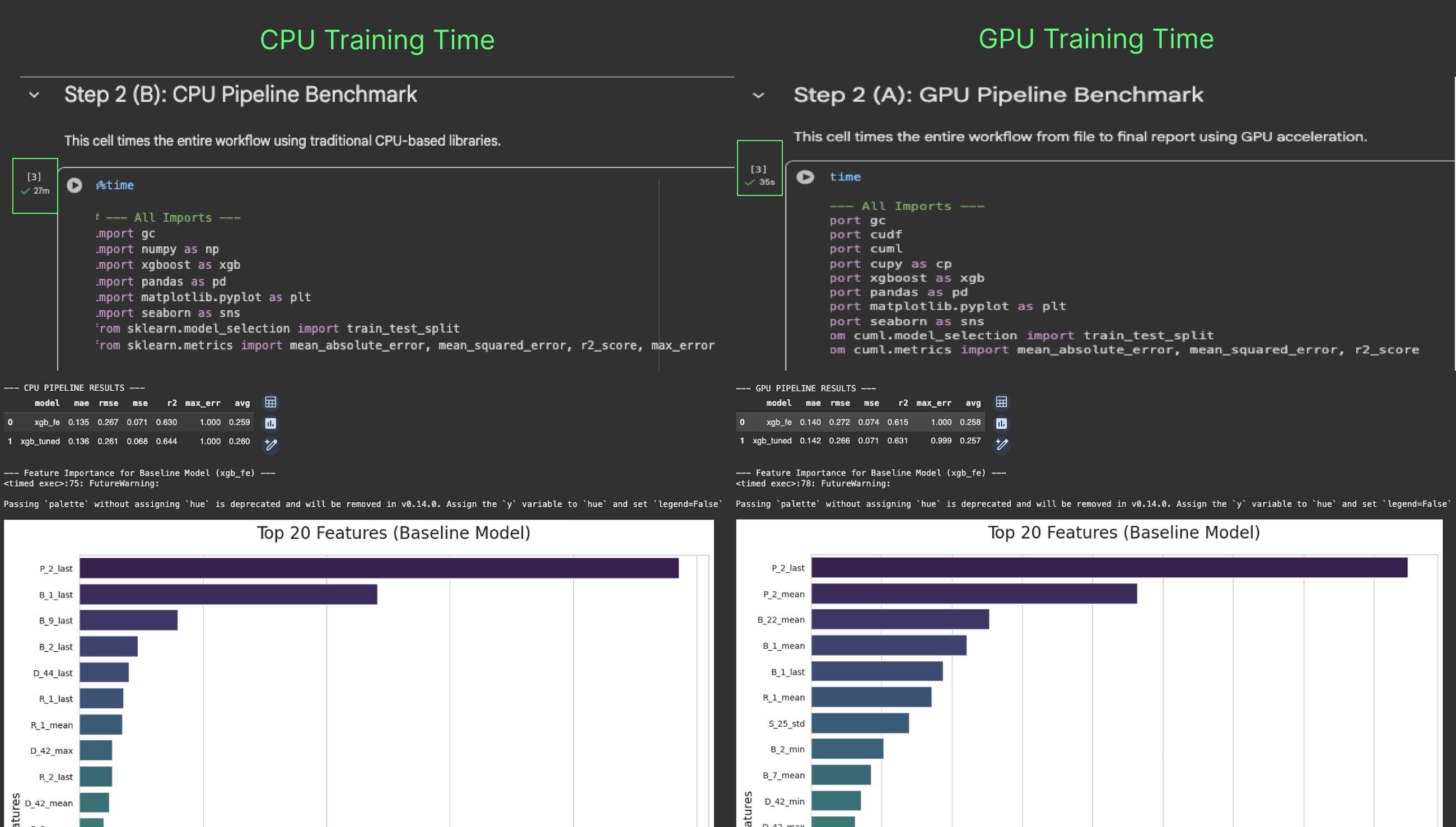The most dangerous advice comes from people who survived something you’ve never experienced.
Advice is just other people’s trauma dressed up as wisdom.
I spent years collecting other people’s rules like they were universal laws. “Don’t put all your eggs in one basket.” “Always have a backup plan.” “Don’t trust people too quickly.” “Be realistic about your expectations.”
I thought I was being smart, learning from other people’s experience so I wouldn’t have to make their mistakes.
I was actually building a prison out of other people’s scars.
Here’s what nobody tells you about conventional wisdom: Every single piece of it exists because someone got burned and decided their burn should become everyone else’s rule.
“Don’t trust people too quickly” = someone got betrayed by someone they trusted.
“Always have a backup plan” = someone got blindsided when their sure thing fell through.
“Don’t quit your day job” = someone took a risk that didn’t work out.
“Be realistic about your goals” = someone failed publicly and decided ambition was the problem.
None of these are universal truths. They’re just coping mechanisms that got popular.
The person telling you to “be careful” isn’t protecting you from danger – they’re protecting themselves from having to relive their own painful experience. When they see you about to do something that reminds them of their trauma, they disguise their trigger as wisdom.
Most limitations you’ve accepted aren’t based on what’s possible – they’re based on what went wrong for someone else.
But here’s the thing that breaks this whole system: Their trauma happened in their context, with their resources, at their time, with their knowledge, in their circumstances. None of which are yours.
The person who tells you “don’t trust people” might have had terrible judgment about who to trust. The person who says “always have a backup plan” might have been unprepared in ways you’re not. The person who warns you to “be realistic” might have quit too early or aimed for something that wasn’t aligned with their strengths.
You’re living inside other people’s unprocessed fear and calling it prudence.
Every time you follow advice that feels restrictive, ask yourself: “What bad thing happened to this person that made them believe this was necessary?”
Most of the time, you’ll realize their advice isn’t actually about the thing they’re advising you on. It’s about their unresolved pain around that thing.
The most successful people ignore advice from people who haven’t done what they want to do.
They don’t seek wisdom from the wounded. They don’t let other people’s trauma become their limitations. They don’t accept “that’s risky” from someone whose biggest risk was a 401k allocation.
This doesn’t mean you ignore all advice. It means you filter it through a different question.
Instead of “Is this good advice?” ask “What experience is this advice protecting me from, and do I actually need that protection?”
Instead of “What could go wrong?” ask “What went wrong for them that they’re trying to prevent me from experiencing?”
Instead of “Should I be careful?” ask “Careful of what, specifically, and why do they think I can’t handle it?”
Most of the walls around your life aren’t keeping you safe – they’re keeping someone else comfortable.
The person who understands that most conventional wisdom is just unprocessed trauma has an unfair advantage over everyone who treats it like universal law.
That person might as well be you.












